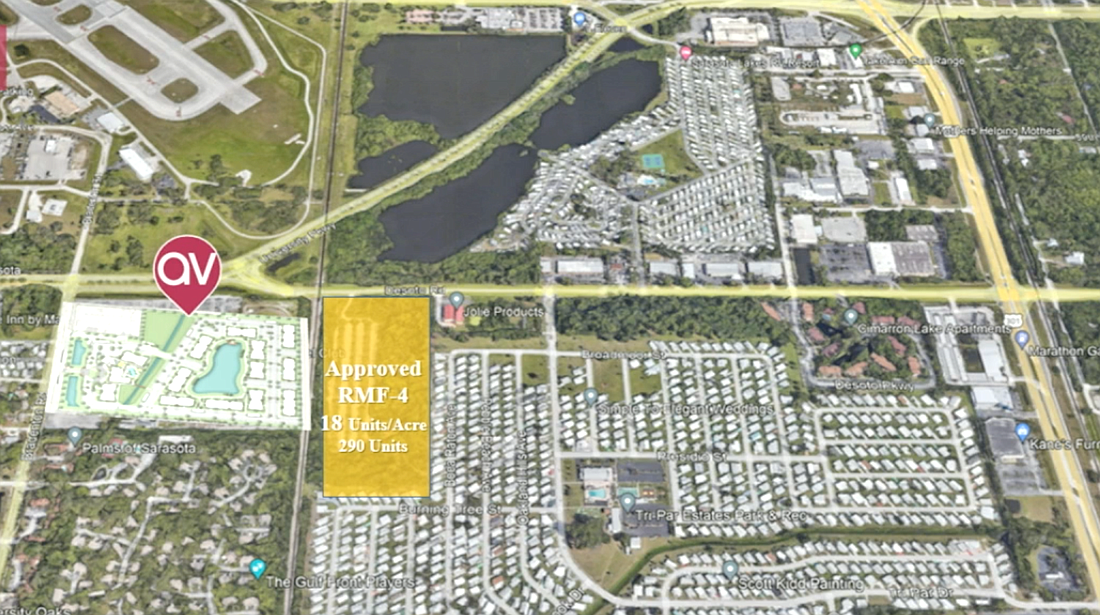- April 19, 2024
-
-
Loading

Loading

The Sarasota Manatee Airport Authority has authorized legal action against the city of Sarasota in opposition to an apartment community approved by the Sarasota City Commission.
During a special meeting on Monday, the authority’s board of directors voted 5-0, with one abstention, to pursue litigation to prevent Raleigh, North Carolina-based Aventon Cos. from building a 372-unit complex at the former Sarasota Kennel Club.
Board member Doug Holder abstained, citing prior legislative representation work for the Collins family, which owns the property via the Jack G. Collins Sr. Revocable Trust, during the greyhound racing constitutional amendment matter that eventually shut down the kennel club in 2019.
The airport board charges the commission’s 4-1 vote, with Commissioner Jen Ahearn-Koch opposed, to amend the future land use plan, rezone the property and approve the site plan violate a 2018 interlocal agreement between the city and the airport. That agreement restricts residential zoning beneath the 65 decibel day-night average sound level. A large portion of the former dog track lies beneath the noise contour, the runway approximately 1,500 feet away across University Parkway from the site.
At its monthly meeting the week prior to the Sept. 6 approval of the Aventon development, the authority board authorized Sarasota-Bradenton International Airport President and CEO Rick Piccolo and SRQ legal representation to pursue a strategy for legal action against the city.
Among the declarations the board approved in its resolution are:
“On May 7, 2018, the city amended its zoning regulations to include … that residential land use is an incompatible and prohibited use within airport noise contour 65-70, but if the city determines that residential uses must be allowed, measures to achieve outdoor to indoor noise level reduction must be incorporated.”
Also, “On May 31, 2018, the city and the authority entered into an interlocal agreement … to acknowledge their respective obligations to adapt, administer and enforce updated airport zoning regulations applicable to airport hazard areas, and restricting use of land adjacent to to or in the immediate vicinity of airport activities and purposes compatible with the continuation of normal airport operations.”
In October 2021, Aventon filed an application to change the future land use map of the 25-acre site to allow multifamily density. Throughout ensuing public hearings on future land use plus the rezoning and site plan before the Planning Board and City Commission, Piccolo testified against approval of the apartment community, citing the interlocal agreement, violation of the city’s own policy and costly previous noise abatement issues in surrounding neighborhoods.
Specific issues of the authority’s case include:
Much of the airport’s case hinges on the definition of the word “must” as cited in the interlocal agreement. Piccolo told commissioners the airport defines "must" as a deed restriction requiring land be developed in a specific manner. City commissioners defined "must" as what they consider a land use must be to meet a critical community need, in this case the need for housing.
The resolution authorizes Piccolo and airport legal representation to initiate conflict resolution procedures provided by the Florida Governmental Conflict Resolution Act prior to initiating court proceedings.